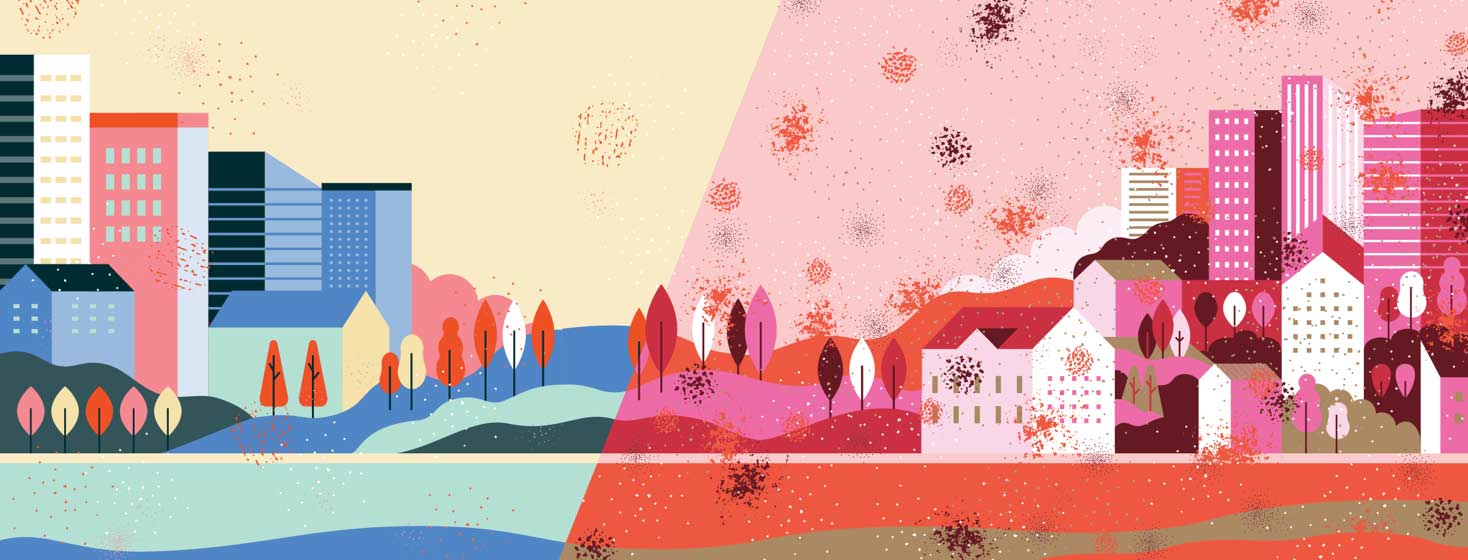Worst Cities for Allergies
It's that time of year again. Allergy season has already started and my family of 5 is miserable. It's only February, so how are seasonal allergies here ALREADY?! Is that even possible?
I was listening to a webinar from a national allergy & asthma expert, and he said that he tells his patients to start on allergy medicine BEFORE allergy season starts.
He used to tell them to start by St. Patrick's Day - now he tells them to start by Valentine's Day! Ugh!
Allergies start early
American College of Allergy, Asthma and Immunology (ACAAI) says:
"...if you begin your allergy medications before the worst symptoms hit this spring, your suffering won’t be as bad. Although people think spring starts in April, symptoms can begin earlier in warmer areas."1
What do allergies have to do with asthma anyway? Well, about 60% of those with asthma have the allergic type. And many allergies can cause an asthma attack.2
Our family has year-round allergies, and we buy allergy pills and nose spray at the warehouse store. NOT kidding. Also, a must are tissues with lotion so we can avoid chronic red noses. We're not sick - it's just allergies! It's like having a mild cold that lasts year-round, and it gets really old really fast. And if we weren't miserable enough, it's extra miserable in spring and summer when seasonal allergies add to our other allergies.
Are you miserable too? How do can you find out what it's like where you live?
2021 worst cities for allergies
Lucky for you, the Allergy and Asthma Foundation of America (AAFA) creates an annual list of the best and worst places in America for allergies. Actually - they call them the "most challenging" and "least challenging" places to live with allergies, but you get the idea.3
How do they score the best and worst cities for allergies? They look at a few things:
- Fall and spring pollen levels
- Use of over-the-counter allergy meds (hello warehouse store!)
- Number of board certified allergists in that area
I'll list the most challenging and least challenging, but since they rank 100 cities, you'll have to visit AAFA's website to see the full list.
#1 (most challenging) place to live with seasonal allergies is... drum roll, please... Scranton, Pennsylvania. I'm sure all of you Office fans can hear Michael Scott complaining now, right?
#100 (least challenging) places to live with seasonal allergies is... also need a drum roll here... Durham, North Carolina.
So, now what now?
Now that allergy season is on the way (or already here in some parts of the U.S.), what do you do?
We have found many things that help our family's seasonal allergies:
- Already mentioned this - but we really do buy allergy medicine in bulk
- Watch the pollen count every day (if it's a high day for one of our worst allergies, we stay inside)
- Keep the windows closed in our home and cars
- Use recirculating air in the car
- Change the furnace filter frequently in the house
- Change the cabin air filter in the car (NOT the air filter on the engine - the air filter for the INSIDE of the car)
- Take our shoes off when we enter the house (helps not to track pollen around the house)
- Shower before bed (this removes the pollen from our skin and hair)
- Wash sheets weekly (helps keep any stray pollen off the sheets)
- Use an air purifier in our bedrooms (the white noise also helps us sleep better!)
- Allergy shots (immunotherapy) - we've already spent 5 years and all 3 kids have finished their shots
Now that pollen season is here and rearing its ugly head, I would love to know what you do to battle pollen! What works for you? Any tips that can help others with allergies and asthma?
Is your area one of the best or worst cities for allergies and asthma triggers? Share in the comments below!

Join the conversation